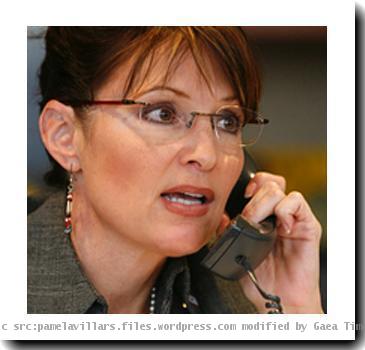Writer of Palin fence editorial says split from newspaper unrelated to controversial piece
By Rachel Doro, APTuesday, June 22, 2010
Newspaper, writer of Palin editorial part ways
ANCHORAGE, Alaska — The managing editor of the newspaper in Sarah Palin’s hometown has left his job, just weeks after he wrote an editorial noting Alaska’s protective “deadly force” law in reference to the former governor’s new neighbor, an author who is writing a book about her.
Tom Mitchell’s May 29 opinion piece in the Mat-Su Valley Frontiersman in Wasilla prompted an onslaught of comments, and he later apologized for the remark.
But both Mitchell and Frontiersman publisher Kari Sleight said Tuesday his June 14 departure had nothing to do with the editorial.
“I absolutely, 100 percent, unequivocally stand by my statement that his separation in the relationship is not related to the Palin editorial,” Sleight told The Associated Press.
Neither would say whether he quit or was fired.
Mitchell’s editorial was about a tall fence erected by Palin, the 2008 GOP vice presidential nominee, to prevent author Joe McGinniss from peering into her family’s home. It concluded by noting that McGinniss might be reminded about an Alaska law that “allows the use of deadly force in protection of life and property.”
The editorial triggered multiple comments, including some who said the “deadly force” reference was threatening and advocated violence.
Also prompting a flood of comments was the subsequent apology by Mitchell, who told readers he would leave out that last sentence if he could do it over again.
“I certainly did not mean to suggest that McGinniss would or should be the victim of violence,” he wrote. “For that matter, I didn’t mean to suggest the Palins would do such a thing.”
After 428 reader postings on the newspaper’s website, Sleight issued a statement that comments on the editorial had been suspended. She said most were repetitive and “do not add value to a healthy discussion or debate.”
Mitchell left the newspaper two weeks later, after working there for about a year and a half. He said he signed an agreement to not discuss the circumstances behind his departure.
“I can tell you I was not fired because of the editorial,” he said.
Sleight also declined to discuss the nature of Mitchell’s exit, citing confidentiality rules. She stressed, however, that the editorial played no role in it, and said the timing was “just a strong coincidence.”
Sleight declined to discuss the editing of the opinion piece.
Mitchell, however, said the publisher was out of the office when he turned in the editorial. He said Sleight was working off “some kind of communication device” that prevented her from highlighting changes to his work.
He said Sleight indicated she wanted the last sentence taken out when she actually meant the last paragraph, including the offending line.
“The point is, we had a miscommunication about what she wanted omitted,” he said. “If I’d have known, it would have come out immediately.”
The Frontiersman is published three times a week and has a circulation of about 6,200.

